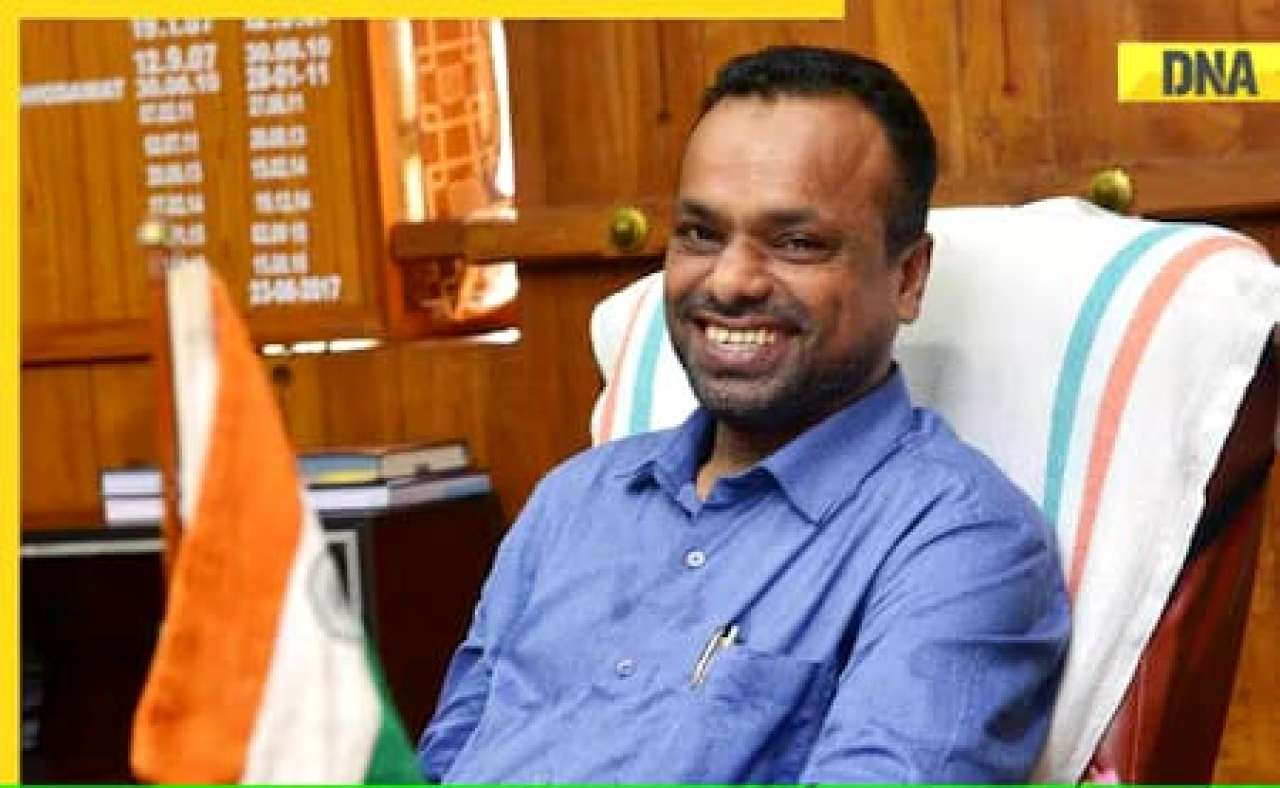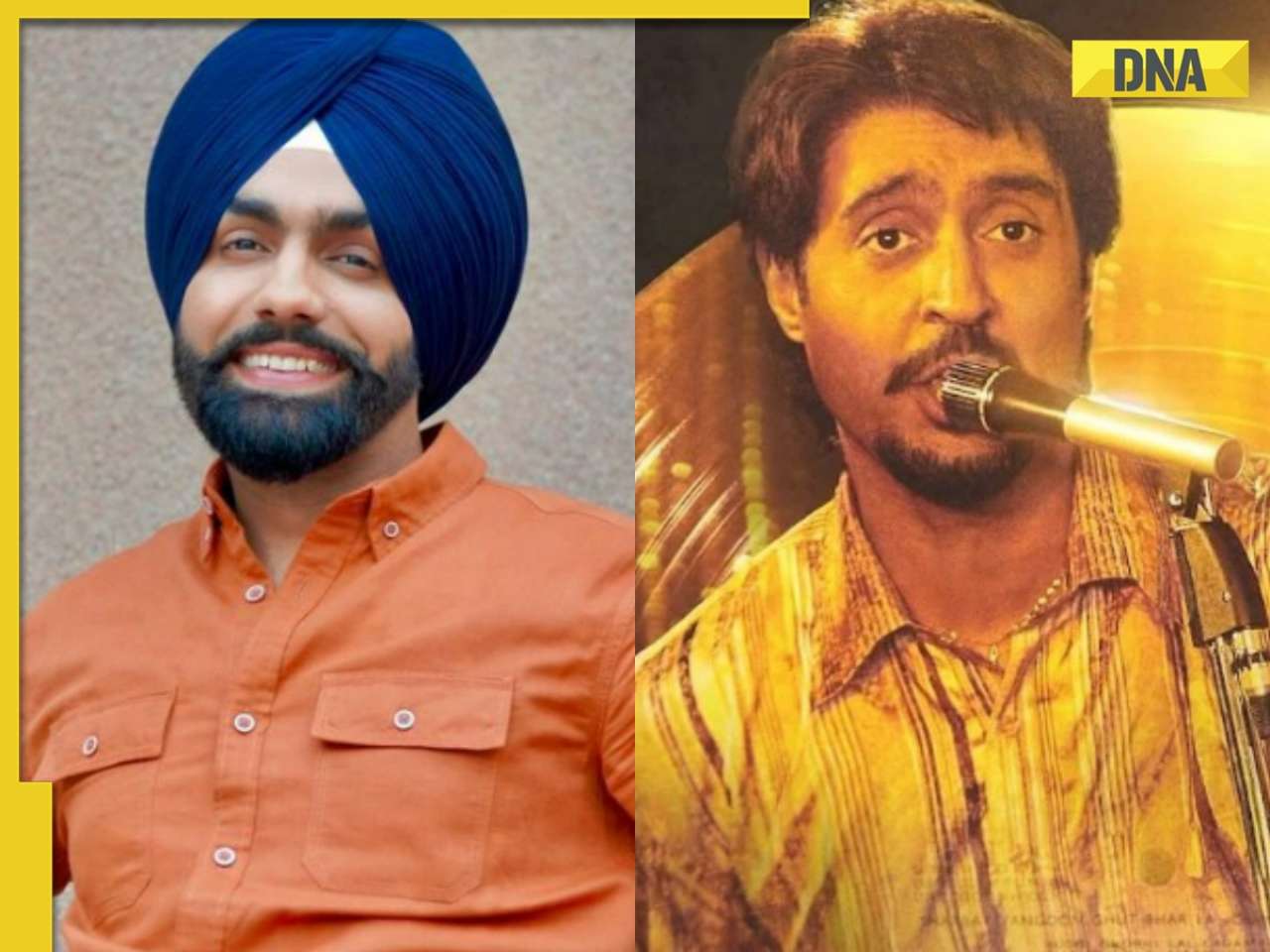Stringent NDPS Act prescribes death for repeat offenders, but defence may challenge its constitutionality.
Shabbir Shaikh, who was convicted on Tuesday in a narcotics case, faces the prospect of being awarded the death sentence.
Reason: 13 years ago, he was reportedly found guilty of smuggling mandrax tablets. Under the stringent Narcotics, Drugs and Psychotropic Substances (NDPS) Act, any person convicted of carrying drugs of commercial quantity “shall be punishable with death” for subsequent conviction.
As per section 31A of the act, the court has no discretionary powers as far as sentencing in such cases is concerned. Shaikh was found guilty of possessing mandrax along with three others — Yunus Shaikh, Pratap Gawanekar and Sanjay Pande — in 1997. While the others were sentenced to 10 years in prison, the court has asked the prosecution to prove that Shaikh was convicted earlier in a similar case. Another accused, Harish Patel, was acquitted.
“Once we prove that he was convicted earlier for an offence relating to a commercial quantity of mandrax, the court will frame charges under section 31A and pronounce the sentence,” said special public prosecutor SK Menon.
Menon said he had information that Shaikh was convicted in 1997 by a special NDPS court for an offence he committed relating to a commercial quantity of the drug in 1992. He spent 10 years in prison, after which he was arrested again by the narcotics control bureau (NCB) in 2005.
If Shaikh is sentenced to death, it would be the second such conviction awarded by a city court in a case registered by the NCB.
In 2008, the NCB had secured the death sentence for a Kashmiri man, Ghulam Mohammed Malik, who was found guilty in two cases relating to possession of commercial quantities of hashish in Gujarat and Mumbai. The Bombay high court has stayed the death sentence after he filed an appeal there.
“If my client is sentenced to death, I will try to challenge the constitutionality of the NDPS provision itself,” said Shaikh’s lawyer Taraq Sayed.
The NCB arrested the four convicts on August 30, 2005, in a shop at Kurar village, Malad, in north Mumbai. It seized 65 kg of methaquolone and 4.5 kg of mandrax tablets. As per their case, the accused were manufacturing methaquolone powder at Sigma Chemicals at Taloja and then converting it to mandrax tablets at Kurar.
The NCB also allegedly recovered literature on how psychotropic substances are manufactured, bills showing purchase of labelling machine and dyes, glass line reactor, and other controlled substances used for manufacturing methaquolone at Taloja. The NCB recorded the confessional statements of all four accused. These are admissible in court unless proven involuntary.
During the trial, the prosecution examined around 26 witness, including NCB officers, and panch witnesses.
The first narcotics accused to be convicted for death was in 2003 when a special NDPS court had sentenced a Nigerian national, Prince Uzozie, to death after he was convicted for the second time.
However, on October 26, 2004, a division bench comprising justice VG Palshikar and justice Anoop Mohta had acquitted Uzozie.
A tough law
The law prescribes compulsory death sentence in very few cases. One of them involves section 31A of the Narcotics, Drugs and Psychotropic Substances Act (NDPS), which is an exceptionally tough law. There are very few other provisions under the law which make a death sentence mandatory.
These include section 27(3) of the Arms Act, where an accused found guilty of using any prohibited arms or prohibited ammunition which results in the death of another person “shall be punishable with death.”
“Section 303 of the Indian Penal Code, which provides for a mandatory death sentence, was declared unconstitutional by the Supreme Court many years ago since the provision left no discretionary powers to the court,” said senior defence counsel Ashok Mundargi. The provision earlier stated that if a life convict is convicted for murder, he is to be sentenced to death.
“If section 31A of NDPS is challenged, the same analogy will apply. So far, it has not been challenged,” said Mundargi.
![submenu-img]() Nagaland Lok Sabha Election Result 2024: Full list of winner and loser candidates will be announced soon
Nagaland Lok Sabha Election Result 2024: Full list of winner and loser candidates will be announced soon![submenu-img]() Meghalaya Lok Sabha Election Result 2024: Full list of winner and loser candidates will be announced Soon
Meghalaya Lok Sabha Election Result 2024: Full list of winner and loser candidates will be announced Soon![submenu-img]() Delhi Lok Sabha Election Results 2024: Full List of Winner and Loser Candidates will be announced Soon
Delhi Lok Sabha Election Results 2024: Full List of Winner and Loser Candidates will be announced Soon![submenu-img]() Varun Dhawan, Natasha Dalal blessed with a baby girl, grandfather David Dhawan shares good news
Varun Dhawan, Natasha Dalal blessed with a baby girl, grandfather David Dhawan shares good news![submenu-img]() DNA TV Show: Opposition rejects exit polls results, demands counting of postal ballots first
DNA TV Show: Opposition rejects exit polls results, demands counting of postal ballots first![submenu-img]() Meet man who won medals for India in bodybuilding, cracked UPSC in 1st attempt, resigned as IRS after 10 years due to...
Meet man who won medals for India in bodybuilding, cracked UPSC in 1st attempt, resigned as IRS after 10 years due to...![submenu-img]() IIT-JEE topper with AIR 1 joins IIT Bombay, gets job at NASA as scientist, leaves to work as…
IIT-JEE topper with AIR 1 joins IIT Bombay, gets job at NASA as scientist, leaves to work as…![submenu-img]() Meet man who grew up in orphanage, began working at 10 as cleaner, delivery boy, then became IAS officer, is posted at..
Meet man who grew up in orphanage, began working at 10 as cleaner, delivery boy, then became IAS officer, is posted at..![submenu-img]() Meet UPSC topper who cleared JEE Advanced, went to IIT Kanpur, left high-paying job to become IPS officer, secured AIR..
Meet UPSC topper who cleared JEE Advanced, went to IIT Kanpur, left high-paying job to become IPS officer, secured AIR..![submenu-img]() Meet woman who cracked UPSC exam twice, left IPS to become an IAS officer, secured AIR...
Meet woman who cracked UPSC exam twice, left IPS to become an IAS officer, secured AIR...![submenu-img]() DNA Verified: Did Kangana Ranaut party with gangster Abu Salem? Actress reveals who's with her in viral photo
DNA Verified: Did Kangana Ranaut party with gangster Abu Salem? Actress reveals who's with her in viral photo![submenu-img]() DNA Verified: New Delhi Railway Station to be closed for 4 years? Know the truth here
DNA Verified: New Delhi Railway Station to be closed for 4 years? Know the truth here![submenu-img]() DNA Verified: Did RSS chief Mohan Bhagwat praise Congress during Lok Sabha Elections 2024? Know the truth here
DNA Verified: Did RSS chief Mohan Bhagwat praise Congress during Lok Sabha Elections 2024? Know the truth here![submenu-img]() DNA Verified: Is CAA an anti-Muslim law? Centre terms news report as 'misleading'
DNA Verified: Is CAA an anti-Muslim law? Centre terms news report as 'misleading'![submenu-img]() DNA Verified: Lok Sabha Elections 2024 to be held on April 19? Know truth behind viral message
DNA Verified: Lok Sabha Elections 2024 to be held on April 19? Know truth behind viral message![submenu-img]() Lok Sabha Elections 2024: What are exit polls? When and how are they conducted?
Lok Sabha Elections 2024: What are exit polls? When and how are they conducted?![submenu-img]() DNA Explainer: Why was Iranian president Ebrahim Raisi, killed in helicopter crash, regarded as ‘Butcher of Tehran’?
DNA Explainer: Why was Iranian president Ebrahim Raisi, killed in helicopter crash, regarded as ‘Butcher of Tehran’?![submenu-img]() DNA Explainer: Why did deceased Iranian President Ebrahim Raisi wear black turban?
DNA Explainer: Why did deceased Iranian President Ebrahim Raisi wear black turban?![submenu-img]() Iran President Ebrahim Raisi's death: Will it impact gold, oil prices and stock markets?
Iran President Ebrahim Raisi's death: Will it impact gold, oil prices and stock markets?![submenu-img]() Haryana Political Crisis: Will 3 independent MLAs support withdrawal impact the present Nayab Saini led-BJP government?
Haryana Political Crisis: Will 3 independent MLAs support withdrawal impact the present Nayab Saini led-BJP government?![submenu-img]() Varun Dhawan, Natasha Dalal blessed with a baby girl, grandfather David Dhawan shares good news
Varun Dhawan, Natasha Dalal blessed with a baby girl, grandfather David Dhawan shares good news![submenu-img]() Natasa Stankovic's friend Aleksandar Ilic slams troll saying he broke her marriage with Hardik Pandya: 'Should I...'
Natasa Stankovic's friend Aleksandar Ilic slams troll saying he broke her marriage with Hardik Pandya: 'Should I...'![submenu-img]() Neha Sharma reveals if her father's political career has backfired on her in Bollywood: 'I am not here to promote...'
Neha Sharma reveals if her father's political career has backfired on her in Bollywood: 'I am not here to promote...'![submenu-img]() Venom The Last Dance trailer: Tom Hardy and his symbiote fight aliens in trilogy's finale, film to release on...
Venom The Last Dance trailer: Tom Hardy and his symbiote fight aliens in trilogy's finale, film to release on...![submenu-img]() Ammy Virk defends Diljit Dosanjh's decision to not wear a turban in Amar Singh Chamkila: 'You can't stop the trolls'
Ammy Virk defends Diljit Dosanjh's decision to not wear a turban in Amar Singh Chamkila: 'You can't stop the trolls'![submenu-img]() Watch viral video: Isha Ambani stuns during Anant Ambani and Radhika Merchant's pre-wedding celebrations in Italy
Watch viral video: Isha Ambani stuns during Anant Ambani and Radhika Merchant's pre-wedding celebrations in Italy![submenu-img]() Former air hostess reveals harsh realities of flight attendant job, says 'people think...'
Former air hostess reveals harsh realities of flight attendant job, says 'people think...'![submenu-img]() 'Egg fry or fish fry': Viral video shows egg dish looking like goldfish; watch
'Egg fry or fish fry': Viral video shows egg dish looking like goldfish; watch![submenu-img]() Viral: IndiGo crew protects passengers from rain, watch heartwarming video
Viral: IndiGo crew protects passengers from rain, watch heartwarming video![submenu-img]() This variety of mango costs Rs 2.50-3 lakh a kg, know why
This variety of mango costs Rs 2.50-3 lakh a kg, know why


























































)
)
)
)
)
)